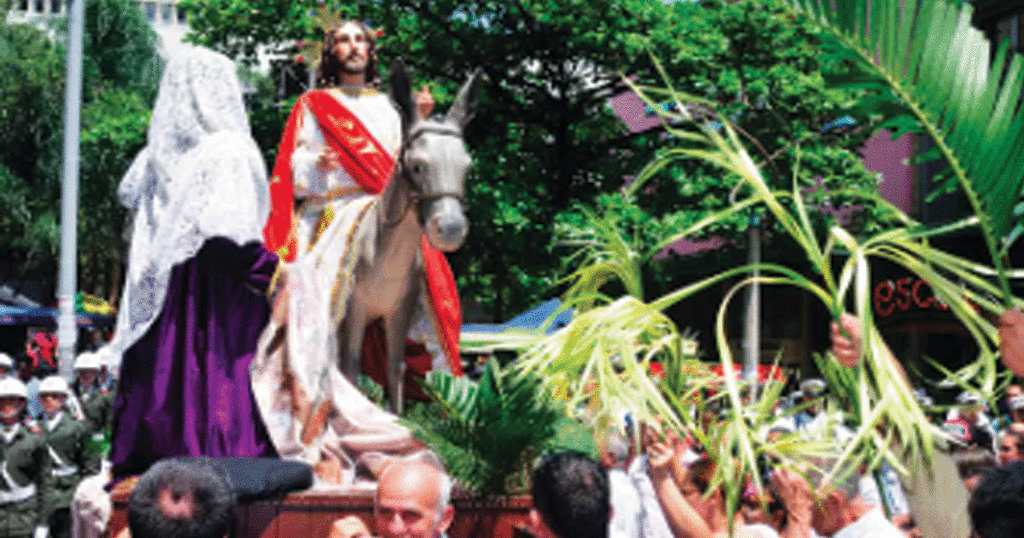As Easter arrives so late this year, this issue of the HighWay will arrive before Holy Week. My Easter greeting to the Diocese will arrive by email, at Easter. But now in the remaining days of Lent, it is worth pondering Holy Week itself as a spiritual practice. How do the liturgies and readings of Holy Week help us to grow in our discipleship and deepen our relationship with God?

The pageantry of Palm Sunday and Passion Sunday run the gamut of human emotion. Liturgy and ritual are safe containers for us to explore our feelings and thoughts about aspects of our faith. On Palm Sunday, waving palm branches, we give voice to our joy and celebrate our sense of Jesus as Sovereign in our lives. Hearing or participating in reading the passion story, we experience the horror of being part of the crowd that eggs on Pilate to crucify Jesus. We feel the angst and agony of our part in betrayal of God, which takes many shapes – our corporate responsibility for overusing/abusing our planet, for economic systems that keep people poor or disenfranchised, our guilt at our silence in the face of injustice, our collective sin. I cringe when the congregation yells “Crucify him! Crucify him!” I wince when Pilate washes his hands of responsibility for the violence of handing Jesus over to death. The drama can open us to self-awareness and therefore to God’s transformation.
Even some of our personal preparations for Easter can become meditations on God’s work toward our redemption. Polishing tarnished silver or spring cleaning are great metaphors for God’s work of cleansing and renewal.
In a couple of parishes I served in, I offered a workshop on Tuesday in Holy Week for people to plan their funeral. The depth of discussion was amazing, as people who had known each other for years shared why they wanted a particular hymn or piece of music at their funeral: what this expressed about their faith. We began Lent with the Imposition of Ashes as a sign of our mortality, and in Holy Week we follow Jesus to his death. Part of being a mature Christian is the contemplation of our own death. Planning our funeral is a healthy spiritual practice, a discipline that makes sense in the container of Holy Week.
I invite you to engage in as many of the stories of holy week as possible: the reenactment of the Last Supper, Jesus washing the feet of the disciples with the New Commandment to love one another; the stripping of the altar with the stark empty darkness as we leave in silence after Jesus’ arrest in the Garden of Gethsemane. The dismay of Peter when the cock crows Friday morning makes us face our own betrayals. The grief and helplessness of the trial and crucifixion. Experiencing the powerlessness in the face of the cruelty of the Roman Empire takes on more significance as we live through the distressing disturbances and dismantling of democracy in our own world. We stand as disciples at the foot of the cross. Through Holy Week we ponder how God’s presence is hidden, and yet is working in and through and in spite of all the suffering.
I do not think it is possible to experience and celebrate the surprise and joy of the Resurrection unless we have walked through the losses of Holy Week.
May you discover again this Holy Week Christ’s presence with us through our suffering, and God’s power for transformation and healing.
Yours in Christ,
Bishop Lynne


